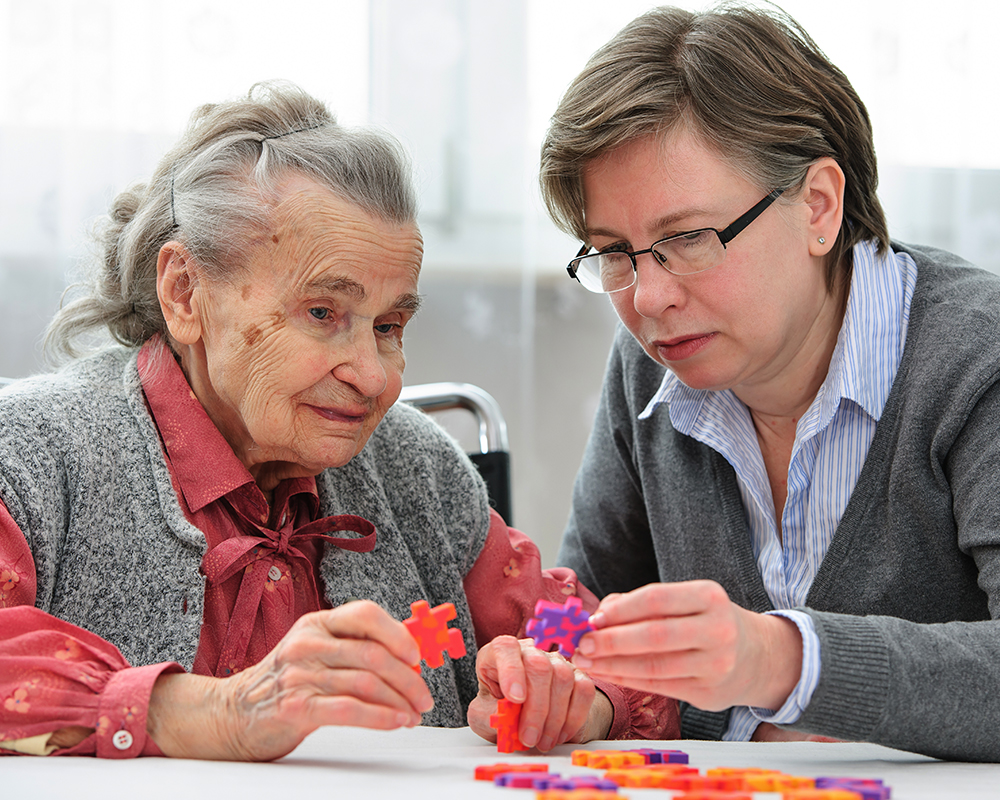Last week the DC founder, Emily- Jane Stapley and I attended a Dementia Friends information Session. If you haven’t already been to one, or want to know more about how everyone can help those with the condition then I urge you to book a place. It’s entirely free to attend, and sessions are run all over the UK.
It’s only an hour, and you’ll learn so much about how to help someone with the condition from putting yourself in their shoes, to how to communicate and little ways to keep them feeling useful. Today, I’d like to share a little story with our readers, that we heard at our session, about the ‘Two Bookcases’. Not only does this illustrate beautifully how dementia affects memory, but it also reminds us that everyone, no matter who you are, deserves to be treated with respect and kindness.
The way that Jack, our awesome session leader, described it was that we all have two mental bookcases: The Hippocampus bookcase which contains all our memories; from early childhood right up to last week and another, the Amygdala, which stores our emotional response to each memory. For instance, someone who was very afraid of dogs as a small child may still feel nervous around them as an adult, even though they don’t quite remember why. In a nutshell, what dementia does is that it starts removing books from our memory bookshelf – beginning with the most recent ones, so perhaps what you ate last week or forgetting where you’ve parked on a regular basis.
Sadly, dementia then attacks earlier, deeper, memories. Leafing its way through those treasured tales of getting married, having children, starting your career or your many travels around the world. Slowly moving its way down until the shelves are almost bare and a heap of books are lying on the floor. However, it’s important to note that while your memories themselves aren’t as easy to recall the emotions that go with them are still very present. We do not forget how something felt, be it a happy or sad experience and that’s why it’s so important to regularly visit, engage and interact with someone who has dementia.

Photo Credit: MNC
For example, if a loved one who is in the advanced stages of dementia has their family visit, even if they don’t quite know who they are they remember the feeling of caring for someone special. If you bring them some flowers, play a very simple game or just sit and talk to them then they’ll go to bed with a smile on their face – they won’t know why they’re happy but that doesn’t matter! Similarly, if nobody visits them, or they receive little, to no interaction then they’ll feel sad, or confused but not know why. It’s far better to go to bed happy! As chances are you’ll wake up with a smile on your face and feel fresher, more energetic and ready to take on the day.

Photo Credit: Quote Surf
People with dementia can’t always tell you how they’re feeling so it’s better to keep things as cheerful as possible, avoid any negativity and just have a conversation about what friends, family or even celebrities are up to. You’re not visiting them to have a full on, normal conversation you’re there because you care about their wellbeing. Even if they’ve forgotten who you are, well, you haven’t forgotten them.











1 Comment
[…] recently became Dementia Friends at the DC. This short video from Dementia Friends via the Alzheimer’s Society illustrates […]